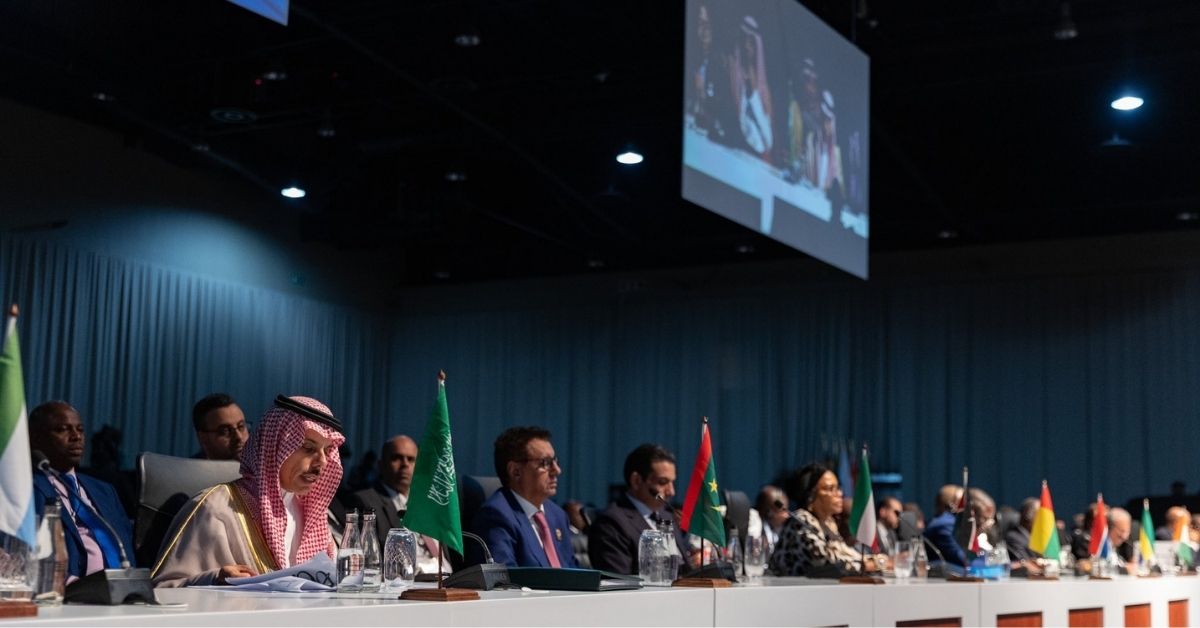NEW DELHI — The BRICS alliance — originally comprising Brazil, Russia, India, China, and South Africa — recently expanded its membership to include four major Middle Eastern countries: Egypt, Iran, Saudi Arabia, and the United Arab Emirates. The decision has profound implications for the geopolitical landscape and the role of BRICS on the global stage. Here are some of the benefits that the inclusion of these Middle Eastern nations brings to the BRICS alliance.
Strengthened global position: The decision to expand the membership from five to eleven countries solidifies BRICS’ position as a formidable global alliance. The inclusion of major Middle Eastern players, along with Ethiopia and Argentina, signifies a shift in the alliance’s focus, making it not just an economic powerhouse but also a politically relevant bloc.
Economic and energy dominance: The Middle East is home to some of the world’s largest oil reserves. With the inclusion of major Middle Eastern countries, six out of the 10 biggest global oil suppliers will now be part of BRICS. This gives the alliance significant leverage in the global energy market, potentially influencing global oil prices and energy policies.
Counter-narrative to Western dominance: The expansion of BRICS serves as a counter-narrative to the western-led G-7 club. With approximately 30 percent of the global GDP and representing 40 percent of the world’s population, BRICS offers a more equitable representation compared to the G-7 countries. The inclusion of Middle Eastern countries further diversifies this representation, challenging the Western-centric view of global affairs.
Strategic autonomy: The foundational idea behind BRICS is to assert the strategic autonomy of its members. Middle Eastern countries, with their unique geopolitical significance, can contribute to this autonomy. Their inclusion sends a clear message against unilateral western sanctions, as seen with the induction of Iran, which has faced U.S. sanctions.
Shared prosperity and democratic global governance: One of the primary attractions of BRICS for many countries is the promise of shared prosperity and a more democratic model of global governance. Middle Eastern countries, with their vast resources and strategic locations, can play a pivotal role in realizing this vision.
Bolstering push for UN reform: The inclusion of Middle Eastern countries can also strengthen the push for UN reforms. With a more diverse representation, BRICS can advocate for more representation of the global south and the expansion of the UN Security Council.
Challenging Western dominance in international institutions: The expansion of BRICS is a clear signal to challenge the dominance of Western nations in international institutions like the United Nations, International Monetary Fund, and the World Bank. The inclusion of Middle Eastern countries, with their significant geopolitical and economic weight, can further this challenge.
Potential for increased liquidity: The addition of cash-rich Middle Eastern nations can bring in much-needed liquidity for establishments like the New Development Bank (NDB). This can further reduce the alliance’s dependence on Western financial institutions.
However, there are a few challenges too that this expansion brings along with it. The historical rivalries between some of the member countries, like India and China or Iran and Saudi Arabia, could slow down the alliance’s progress. Additionally, the overtly political stance of BRICS might make some members uncomfortable, especially those that maintain a delicate balance between global powers.
To sum it up, the inclusion of Middle Eastern countries in BRICS is a strategic move that brings numerous benefits to the alliance. While challenges exist, the potential for reshaping the global economic and political landscape is immense. The Middle East, with its vast resources and strategic position, can play a crucial role in BRICS’ vision of a more equitable and democratic global order.
Abdul Wasey is the Editor of India’s business newspaper The Financial World.
The opinions expressed are those of the author and may not reflect the editorial policy or an official position held by TRENDS.

